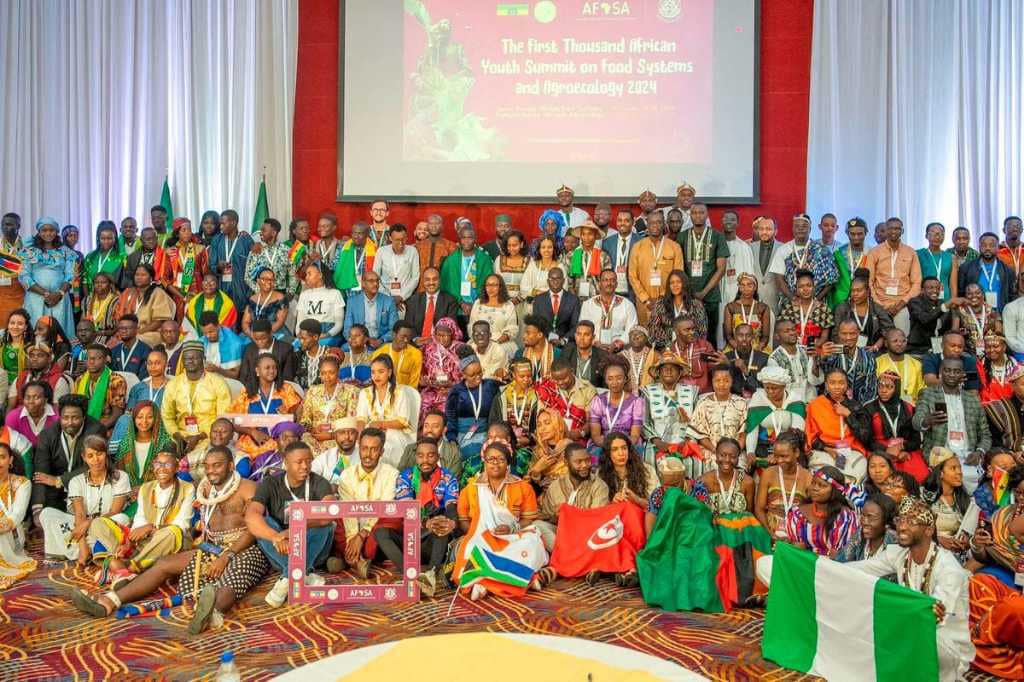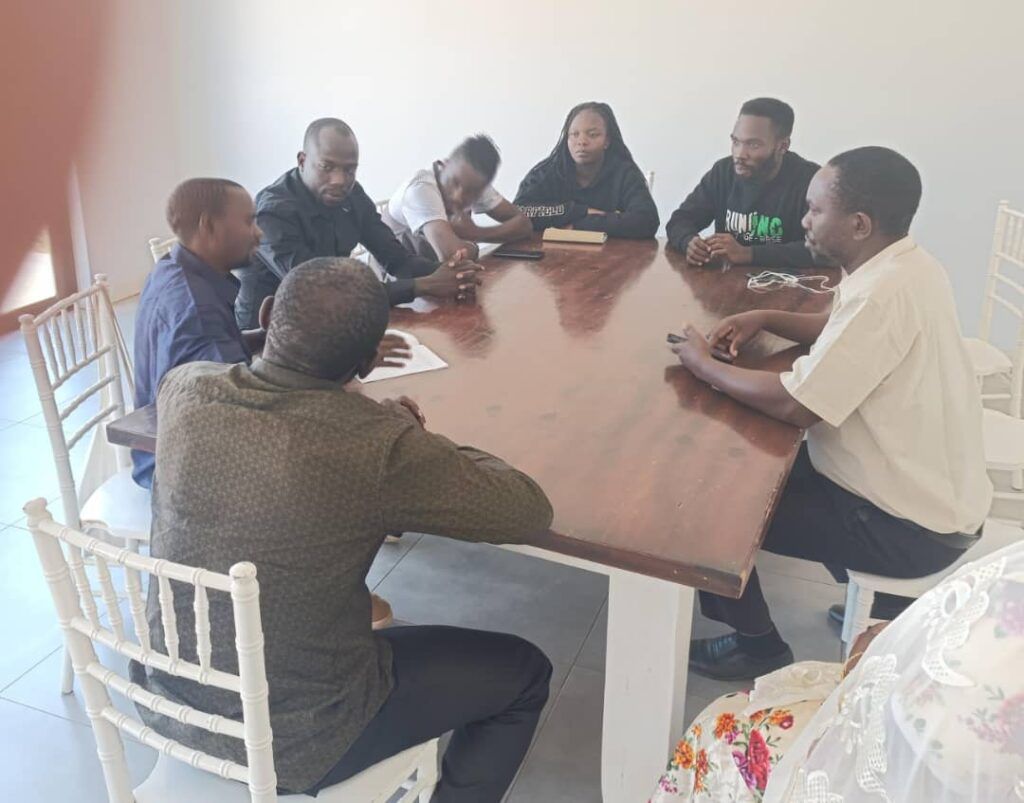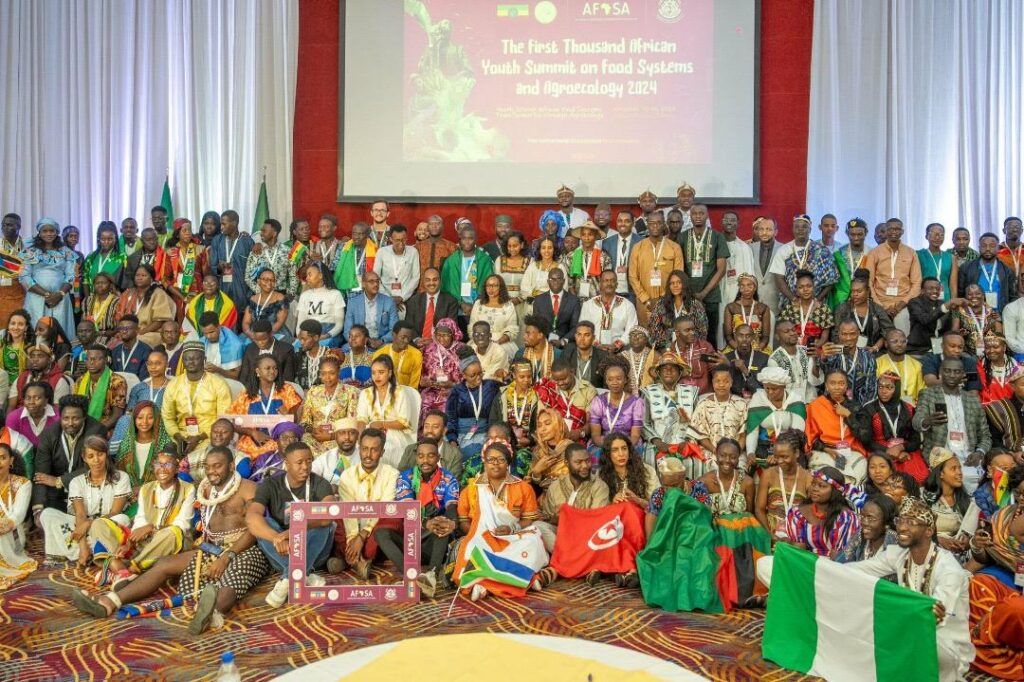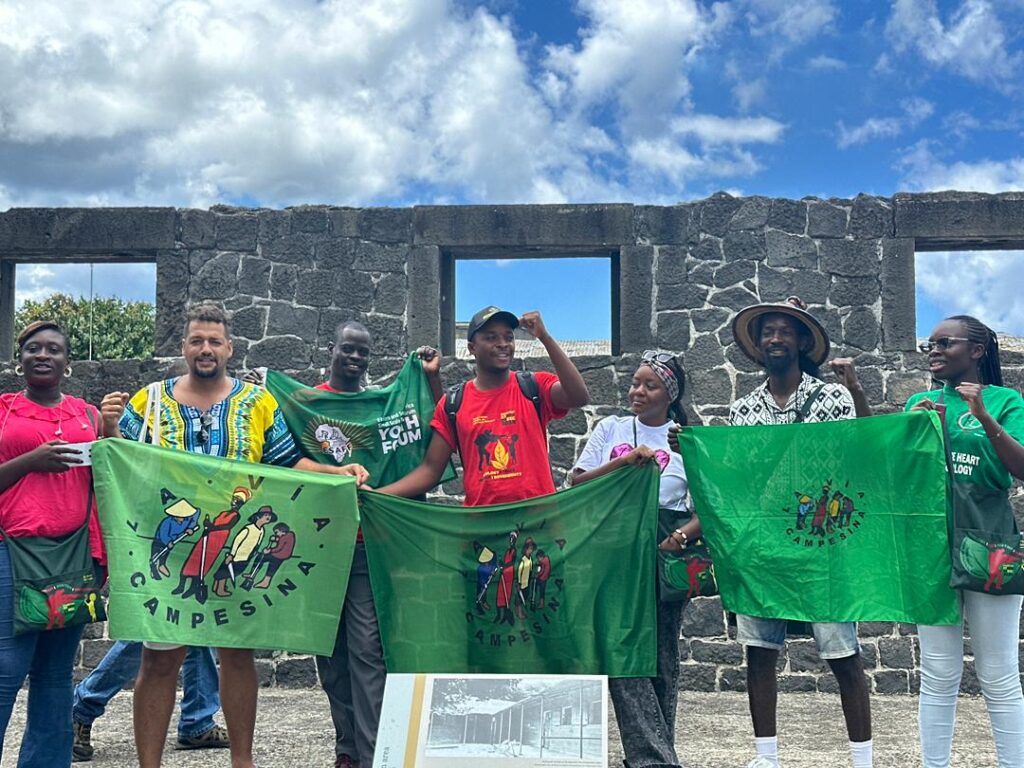African Youth Participate in Formation Sessions in South Africa, Ethiopia, and Mauritius

Between October and December 2024, African youth participated in various training (formation) sessions focused on global contextual analysis, political debates, social movement building, food sovereignty, and youth participation. These events, held in South Africa, Ethiopia, and Mauritius, fostered exchanges and connections that will enhance and strengthen youth-driven actions for 2025 and beyond.
Nkrumah School – Training of Trainers in Political Education, South Africa

The first gathering took place from September 20th to October 6th at the Nkrumah School in South Africa. Using a Training of Trainers methodology, the sessions covered geopolitical contexts, socio-economic situations across different African countries, and their connection to the daily realities of peasant communities. The platform also facilitated debates on ideologies, social theory, and history.
Abraham Ojangole, a member of ESAFF Uganda, expressed appreciation for the experience, noting that the sessions would help young organizers like him mobilize within their communities and connect global developments to local struggles. David Oming, also from ESAFF Uganda, found the training eye-opening in terms of class struggles and the need for socialism in agricultural communities. “Through the training, I acquired various strategies and skills to defend the rights of small farmers in Uganda,” he affirmed.
AFSA 1000 African Youth Summit on Food Systems and Agroecology, Ethiopia

Held from October 14th to 16th in Addis Ababa, Ethiopia, this event brought together more than 200 young people in person and over a thousand participants virtually. It provided a powerful platform for in-depth discussions on the future of youth involvement in agroecology, food systems, and climate justice.
Rachel Reign Muhungu Nibwe, representing LVC from COPACO (D.R. Congo), and Hendrick Mgcini Ndhlovu, from ZIMSOFF (Zimbabwe), participated in the summit. Hendrick described the event as an opportunity to discuss challenges faced by youth today, such as climate change, agroecology, and entrepreneurship. “We must take serious action to address the issues caused by climate change, unemployment, food insecurity, and conflict-driven migration,” he concluded.
CARES School of Ecology, Mauritius
From November 27th to December 2nd, the Indian Ocean School of Ecology (IOSE) in Mauritius served as a transformative platform for education and action, addressing the intersections of ecology, politics, and social justice within the Indian Ocean region and continental Africa. Under the theme “Ecology, Justice, Peace, and Sovereignty,” the event examined critical issues like the failures of capitalism, the ecological crisis, exploitation, and geopolitical conflicts. Topics such as ecofeminism, the rights of nature, and pathways to justice and sovereignty were also explored.
Judith Odhiambo, representing the Kenyan Peasants League (KPL) and LVC, shared how the training strengthened her belief in agroecological practices as a form of adaptation to the climate crisis. “We are already ahead when it comes to adaptation strategies to cope with the climate crisis, but we still need to focus on building the capacity of farmers so that the whole world can adopt agroecological methods,” she concluded.
Peter Tanaka Mudzingwa, from ZIMSOFF, found the training to be an eye-opener, providing a theoretical foundation for understanding why Africa is seen as a threat to the Global West. Relating this to the struggles of farmers, Peter emphasized the need to organize and resist the exploitation of smallholder farmers in Zimbabwe. “There is a need to amplify and resist all forms of exploitation of farmers,” he stressed.
Mamadou Sow, from the Conseil National de Concertation et de Coopération des Ruraux (CNCR – Senegal), was equally appreciative of the training. “We had the opportunity to share our knowledge through the workshops and raise awareness among other young people in the struggle,” he said.
The participation of African youth in these events highlights the ongoing efforts by LVC to empower the next generation of African peasant leaders. The movement is committed to continuing its collaboration with allies and networks to ensure ongoing opportunities for building the capacity of African peasant youth.

